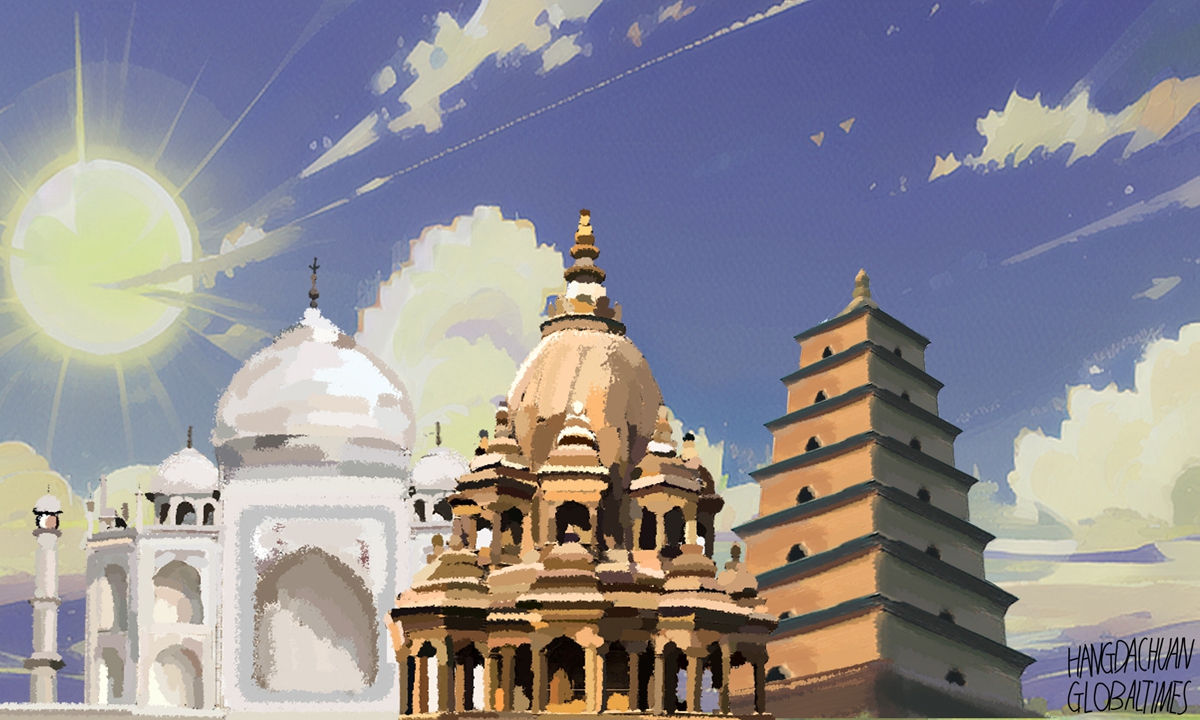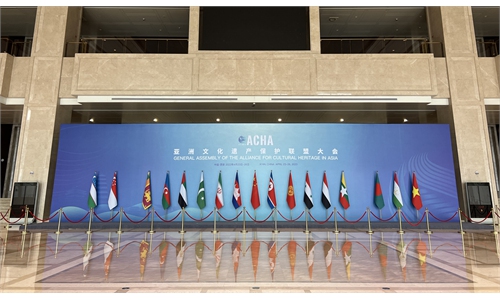ARTS / CULTURE & LEISURE
'Xi'an Declaration' contributes Chinese wisdom to the world

Illustration: Hang Dachuan/Global Times
The Xi'an Declaration was released at the General Assembly of the Alliance for Cultural Heritage in Asia (ACHA) in Xi'an, capital city of Northwest China's Shaanxi Province, on Tuesday. The declaration closely echoes the Global Civilization Initiative and is sure to help contribute Chinese wisdom to the promotion of high-level international cooperation.
The declaration noted that the cultural heritage of Asia has a brilliant history and provides spiritual care and shared cultural assets for Asians and mankind as a whole. More countries are aware of the fact that as the future and destiny of countries are closely linked, the modernization of humanity and prosperity of world civilization cannot be achieved without inclusion, coexistence and mutual learning.
Chinese President Xi Jinping sent a congratulatory letter to the general assembly, noting that as an important cradle of human civilization, Asia has nurtured and is home to an immeasurable wealth of cultural heritage, writing a splendid chapter in the annals of world civilizations.
The declaration closely echoes the Global Civilization Initiative, which was proposed by President Xi.
According to the declaration, the member countries will emphasize the transmission and innovative development of civilizations, strengthen international people-to-people exchanges and cooperation, and promote the shared values of humanity, to build ACHA into a major platform for the conservation of cultural heritage and exchanges and mutual learning of civilizations.
The alliance welcomes more Asian countries to join ACHA to promote the transmission of Asian civilizations and create a better future for the diversity of world civilizations.
China is playing a significant role in the protection of world civilization through joint archaeology, restoration of cultural relics and exhibitions, especially after proposing the Belt and Road Initiative.
China has carried out more than 30 joint archaeology projects with 19 Asian countries, including United Arab Emirates, Uzbekistan and Saudi Arabia. Through the exploration and excavation of important sites along the ancient Silk Road and the Maritime Silk Road, joint archaeological projects have helped explore the context of Asian civilization and demonstrated the contribution of Chinese civilization to the world.
China has taken part in 11 protection and restoration projects in six Asian countries, including Cambodia, Mongolia and Kyrgyzstan, greatly expanding the international vision and influence of Chinese archaeology.
For example, China and Nepal have cooperated closely in the restoration of world heritage. In 2022, the restoration of the main section of the Basantapur Palace Complex at the heart of Kathmandu Durbar Square, a world cultural heritage site in Nepal's capital city, was completed as part of the first major cultural heritage restoration project China conducted in Nepal.
Additionally, Chinese archaeologists, in cooperation with their Cambodian counterparts, have worked tirelessly to reinvigorate the miracle of Angkor via a revitalized Silk Road during the past 30 years.
In today's world, a time when the destiny of all countries is closely linked, inclusive coexistence and mutual learning between different civilizations play an irreplaceable role in promoting the modernization process of human society and the harmony of world cultures and civilizations.
This declaration provides important guidance for deepening China's cooperation with other Asian countries in cultural heritage and promoting exchanges and mutual learning among Asian civilizations.
Just as President Xi said at the Conference on Dialogue of Asian Civilizations held on May 15, 2019, "China is ready to work with other countries to protect Asian cultural heritage and better preserve and sustain our civilizations."

